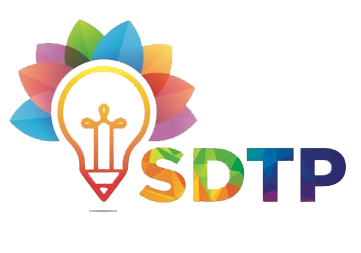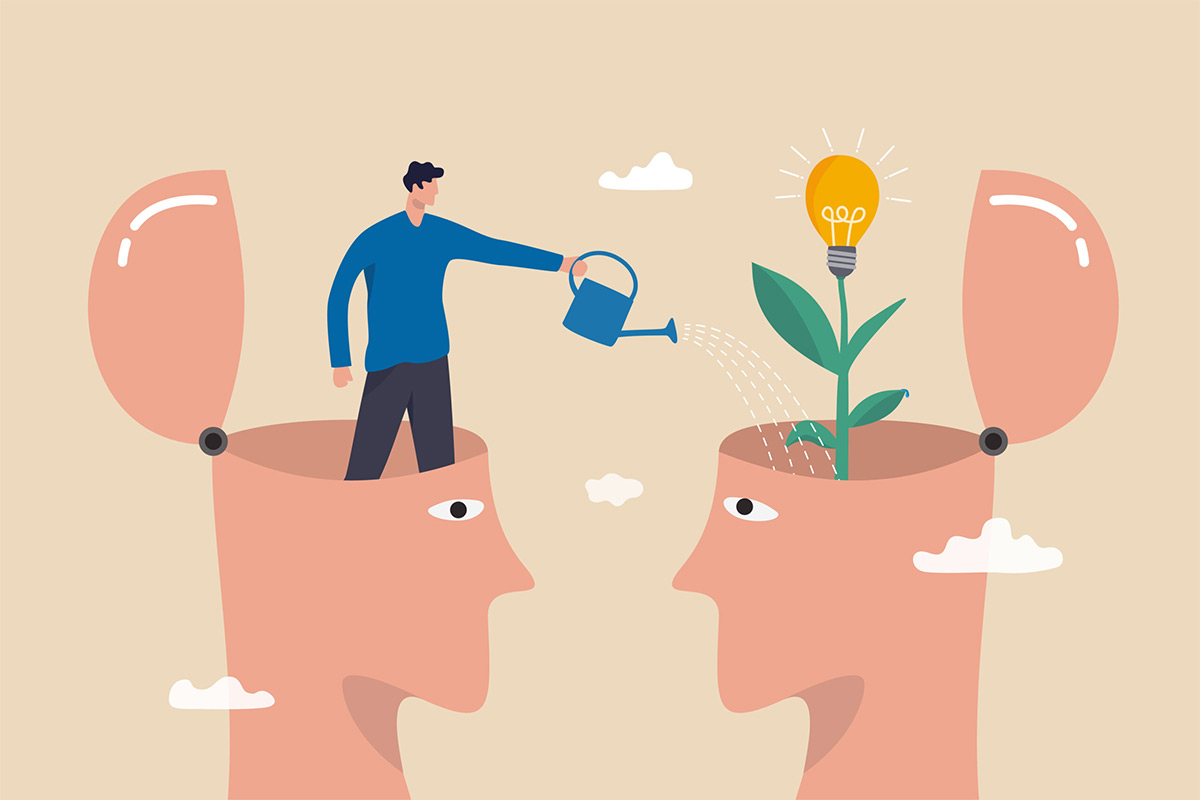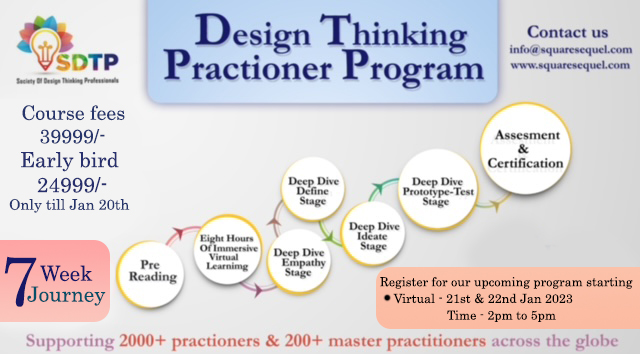You cannot transmit wisdom and insight to another person. The seed is already there. A good teacher touches the seed, allowing it to wake up, sprout, and grow.
– Thich Nhat Hanh
In the tapestry of human interactions, there exists an ancient art that has transcended time and left an indelible mark on countless souls – mentorship. The seed of wisdom and insight lies dormant within every soul. A mentor, like a skilled gardener, possesses the unique ability to gently touch that seed, awakening its latent potential, and nurturing it to blossom into greatness. Just as the first rays of the sun coax a flower to unfurl its petals, a mentor illuminates the path to enlightenment, guiding the way for the seed of knowledge to sprout and flourish.
Almost every successful person believes that mentoring works. 71% of Fortune 500 organizations have mentorship programs in their workplace. However, every employee, regardless of their level of authority, requires a mentor at some point in their career. Seeking out a mentor and establishing an ongoing relationship boosts confidence and accelerates skill growth, it creates opportunities to demonstrate agility in applying new concepts with someone in the trenches.
According to one study, 97% of employees believe mentors are important, and 55% believe that having a mentor can help you achieve your goals. Another study discovered that employees who have mentors are more likely to be promoted. Furthermore, 67 percent of firms report that having a mentor increases employee productivity.
Studies and anecdotal evidence reveal that mentorship may change people’s lives and careers. However, for a mentoring relationship to be successful, mentors must be aware of their mentoring style.
As we traverse through the riveting tales of mentor-mentee relationships and the enlightening insights of revered scholars, we shall witness the alchemy of mentorship – a timeless bond that ignites the embers of greatness and leaves an everlasting legacy.
What Is Mentorship?

Our chief want in life is somebody who will make us do what we can.
– Ralph Waldo Emerson
According to Kathy Kram, a top mentoring specialist, mentorship is “a dynamic, reciprocal relationship in a work environment between an advanced career incumbent and a beginner aimed at promoting the development of both.” This dynamic generates a strong symbiotic relationship in which both sides profit greatly.
A mentoring relationship is built on trust and is distinguished by an exchange of knowledge, experience, and goodwill. Mentoring emphasizes the growth of the mentee’s capacity, rather than simply providing advice or solutions. It’s like the adage, “Give a man a fish, and he’ll eat for a day; teach a man to fish, and he’ll eat for a lifetime.” With the mentor’s assistance, the mentee improves their ability to sail through uncharted waters.
Mentorship extends far beyond the realms of traditional education. It is not confined to a specific discipline or age group. Rather, it thrives in the cradle of human interactions, emerging in various forms and settings. From the apprentice and the master craftsman to the young entrepreneur seeking guidance from a seasoned business leader, mentorship is a bridge that spans generations and cultures, fostering growth and mutual inspiration.
Mentorship is a potent tool for grooming future leaders and promoting leadership skills. An exemplary illustration of this is the mentorship of Indra Nooyi, the former CEO of PepsiCo, by her mentor Steve Reinemund. Under Reinemund’s guidance, Nooyi transformed into a visionary leader, eventually taking the reins of the global beverage giant. Her mentorship experience helped her develop strategic thinking, communication prowess, and the ability to navigate complex business landscapes successfully.
Moreover, research by The Center for Creative Leadership reveals that leaders who have benefited from mentorship are more likely to engage in mentorship themselves, perpetuating a culture of learning and growth within organizations.
As highlighted by Robert J. Lavigna, a senior fellow at the University of Wisconsin-Madison, “Mentorship is not just about passing on knowledge and experience; it’s about helping someone become the best version of themselves.”
What Does It Take To Be A Good Mentor?

A good mentor is someone who is motivated and enthusiastic about fostering growth in others and is prepared to give their time.
Here are key qualities that define an exceptional mentor:
1. Expertise and Experience
A competent mentor possesses a wealth of knowledge and expertise in their field, garnered through years of practical experience. This know-how serves as the foundation for guiding the mentee through challenges and illuminating the path to success. A mentor’s wealth of knowledge can significantly accelerate the mentee’s learning curve, saving them from potential pitfalls and facilitating a smoother path to success.
Warren Buffett, the legendary investor, has mentored many successful individuals, including Bill Gates. Buffett’s extensive experience and investment wisdom have proven invaluable to Gates, who has praised Buffett’s mentorship for shaping his approach to business and philanthropy.
2. Active Listening and Empathy
Effective mentors are skilled listeners who empathize with their mentees’ struggles, aspirations, and fears. Through active listening, mentors understand the unique context of the mentee, enabling them to offer personalized guidance. Empathy is a vital quality that enables mentors to provide support, validation, and emotional understanding, creating a safe space for the mentee to share their challenges and dreams openly.
Oprah Winfrey, a media mogul, and philanthropist, has been a mentor to numerous individuals over the years. Her exceptional listening skills and empathy have made her an approachable and trusted confidante, allowing her mentees to open up and seek guidance on both personal and professional matters.
3. Constructive Feedback
A good mentor provides timely and constructive feedback, striking a balance between encouragement and honest critique. This fosters continuous improvement and growth for the mentee. Constructive criticism, when delivered with care, can inspire the mentee to take on challenges and enhance their performance.
Eric Schmidt, the former CEO of Google, has mentored many successful tech entrepreneurs, including Larry Page and Sergey Brin, the co-founders of Google. Schmidt’s guidance and candid feedback have been instrumental in shaping Google’s growth and innovation.
4. Supportive and Encouraging
A mentor serves as a cheerleader for their mentee, providing unwavering support and encouragement, especially during moments of self-doubt and adversity. Celebrating the mentee’s achievements, no matter how small, boosts their confidence and motivation, inspiring them to aim higher and strive for excellence.
Maya Angelou, the acclaimed author, and poet, mentored Oprah Winfrey during the early stages of her career. Angelou’s uplifting and empowering words instilled confidence in Winfrey, giving her the courage to break barriers and become one of the most influential media personalities in the world.
5. Commitment to Growth
An exceptional mentor is invested in the growth and success of their mentee. They celebrate the mentee’s achievements as if they were their own and actively seek opportunities to promote their mentee’s advancement. A mentor’s commitment to their mentee’s growth goes beyond just offering guidance; it involves nurturing a lasting and supportive relationship.
Sir Alex Ferguson, the renowned football manager, mentored numerous young footballers during his career, including Cristiano Ronaldo. Ferguson’s dedication to Ronaldo’s development both on and off the field played a pivotal role in shaping the football superstar’s career.
The impact of effective mentorship can be seen in the success stories of numerous individuals who have been fortunate enough to receive guidance from exceptional mentors. As the saying goes, “A mentor is someone whose hindsight can become your foresight.” By embodying the qualities of a good mentor, individuals can unlock the true potential of their mentees and create a legacy of success and empowerment.
Payoffs Of Mentorship

The rewards of mentorship extend far beyond the mentee’s development; mentors themselves gain a wealth of benefits. Let’s explore the profound payoffs that mentorship bestows upon both parties.
Knowledge transfer and legacy building
Mentors often possess a wealth of industry-specific knowledge and practical experience that they have accumulated over their careers. Through mentorship, they have the opportunity to pass on this valuable knowledge to the next generation of professionals. This knowledge transfer can encompass technical skills, problem-solving approaches, industry trends, and best practices.
As mentors impart their knowledge and experiences, they build a legacy that extends beyond their careers. The mentees who benefit from their guidance carry forward the mentor’s teachings and contribute to the growth and evolution of the industry.
Dhirubhai Ambani, the founder of Reliance Industries, was a visionary entrepreneur who revolutionized the Indian business world with his innovative approach and indomitable spirit. In the early 1960s, he founded Reliance Industries Limited, which grew to become one of India’s largest conglomerates.
Mukesh Ambani, Dhirubhai’s elder son, had the privilege of being mentored by his father from a young age. Dhirubhai’s wisdom, business acumen, and determination left a profound impact on Mukesh’s entrepreneurial journey.
Dhirubhai Ambani’s legacy extends far beyond his lifetime. Through his mentorship of Mukesh Ambani, he ensured that his vision and values would continue to shape the future of Reliance Industries and the Indian business community.
When Dhirubhai Ambani passed away in 2002, Mukesh Ambani took over as the Chairman and Managing Director of Reliance Industries. He carried forward his father’s legacy by further expanding the company’s presence in diverse sectors, including petrochemicals, refining, telecommunications, and retail.
Enhanced leadership skills
Leadership is a multifaceted trait that requires continuous growth and development. Mentorship plays a pivotal role in honing and enhancing leadership skills by providing guidance, support, and real-world insights. One such exemplary case is the journey of Indra Nooyi, the former CEO of PepsiCo, whose exceptional leadership skills were nurtured and refined through mentorship.
Throughout her career at PepsiCo, Indra Nooyi benefited immensely from mentorship, which played a crucial role in enhancing her leadership skills. Early in her career at the company, she found a mentor in Wayne Calloway, who was the former CEO of PepsiCo. Calloway recognized Nooyi’s potential and took her under his wing, offering guidance and support.
Under Calloway’s mentorship, Nooyi gained valuable insights into leadership strategies, corporate culture, and decision-making processes. He challenged her to think critically and encouraged her to step out of her comfort zone, pushing her to take on new challenges and leadership roles within the organization.
Fresh perspectives and learnings
Mentorship is a powerful catalyst for fostering fresh perspectives and continuous learning. It empowers mentees to see situations from different angles, embrace innovation, and adapt to changing environments. One remarkable example of how mentorship can lead to fresh perspectives and learning is the inspiring journey of Arunima Sinha, the first female amputee to climb Mount Everest.
Arunima Sinha, a national-level volleyball player, lost her leg in a tragic incident. Despite her physical and emotional trauma, Arunima decided to rise above her circumstances and set new goals. During her recovery, she encountered an individual who would become her mentor, a former Indian mountaineer named Bachendri Pal. Bachendri Pal was the first Indian woman to reach the summit of Mount Everest in 1984.
Under the guidance of Bachendri Pal, Arunima found a new purpose and direction in life. Through mentorship, she gained fresh perspectives on what she could achieve, despite her amputation. Bachendri Pal’s journey of overcoming challenges and achieving greatness on Mount Everest inspired Arunima to embark on a seemingly impossible mission—to become the first female amputee to conquer Mount Everest.
Networking and collaboration
Mentorship fosters meaningful connections between mentors and mentees. As the mentee grows and enters the professional arena, the mentor often gains access to an expanded network of contacts and potential collaborators. Sheryl Sandberg, the Chief Operating Officer (COO) of Facebook, and Mark Zuckerberg, the CEO and co-founder of Facebook, present a compelling example of networking and collaboration in mentorship.
In 2008, Mark Zuckerberg, then in his early twenties and leading the rapidly growing Facebook, recognized the need for experienced guidance to help him navigate the complexities of managing a large-scale tech company. He sought a mentor who could not only provide valuable insights but also challenge him to reach his full potential as a leader.
Sheryl Sandberg is an accomplished executive with a strong background in technology and business. Zuckerberg was impressed by Sandberg’s leadership skills and her successful tenure at Google. Sheryl Sandberg accepted the offer to become Facebook’s COO in 2008, stepping into the mentorship role alongside her operational responsibilities.
Sandberg collaborated with Zuckerberg on strategic decisions, fostering open dialogue and creative problem-solving. Her experience complemented Zuckerberg’s visionary thinking, ensuring a balanced approach to short-term goals and long-term sustainability. Together, their mentorship elevated Facebook’s success in the tech industry.
Personal fulfillment and satisfaction
Witnessing a mentee’s growth and success brings profound personal fulfillment to mentors. Knowing that they played a vital role in someone else’s achievements is a powerful motivator and a source of enduring pride. The mentorship relationship between Oprah Winfrey and Maya Angelou serves as an inspiring example of personal fulfillment and satisfaction derived from mentorship.
Oprah Winfrey, a media mogul and influential figure, had long admired the renowned poet, author, and civil rights activist, Maya Angelou. In the 1970s, Oprah, a young journalist at the time, was introduced to Maya Angelou when assigned to interview her. This encounter marked the beginning of a profound mentor-mentee connection.
Maya Angelou recognized Oprah’s potential and became her mentor, offering guidance and encouragement to aspiring journalists. Over the years, their bond deepened, and Angelou’s wisdom and insights played a pivotal role in Oprah’s personal and professional development.
Through their mentorship journey, Oprah found solace and wisdom in Maya Angelou’s words. Angelou’s guidance transcended professional advice; she also nurtured Oprah’s emotional well-being, helping her overcome past traumas and find inner strength.
Angelou’s mentorship played a crucial role in Oprah’s personal growth, empowering her to embrace vulnerability and authenticity, which later became defining qualities of her successful media career.
Mentorship is a beacon of hope and guidance, illuminating the paths of countless individuals toward success and empowerment. Whether in business, leadership, or personal development, mentorship fosters growth, cultivates leadership, and nurtures success. The transformative power of mentorship knows no bounds. It is an investment in the future, an ode to the past, and a testament to the human spirit’s capacity to uplift and inspire.
In the words of Maya Angelou, “To be a mentor, and an effective one, one must care. You must care. You don’t have to know how many square miles are in Idaho, you don’t need to know what is the chemical makeup of chemistry, or blood or water. Know what you know and care about the person, care about what you know and care about the person you’re sharing with.”
Embrace mentorship, and you embrace growth. Embrace mentorship, and you embrace the future.
https://artofmentoring.net/mentorship/
https://matterapp.com/blog/mentor-and-mentee-roles-responsibilities-and-relationships
https://www.betterup.com/blog/mentor-mentee-relationship
https://www.togetherplatform.com/blog/different-types-of-mentoring-and-their-uses
https://abilitymagazine.com/arunima-sinha-first-woman-amputee-to-climb-mount-everest/
https://www.chieflearningofficer.com/wp-content/uploads/2022/04/AdobeStock_498924974-scaled-1.jpeg
https://cdn.mentorcruise.com/pinax-images/image-set-111/4891c9d2-39f1-4b05-bcc3-2cd34cdee4f7.png
https://trafft.com/wp-content/uploads/2022/11/mentorship.jpg
Written By: Jimmy Jain
Edited By: Afreen Fatima
Society of Design Thinking Professionals









